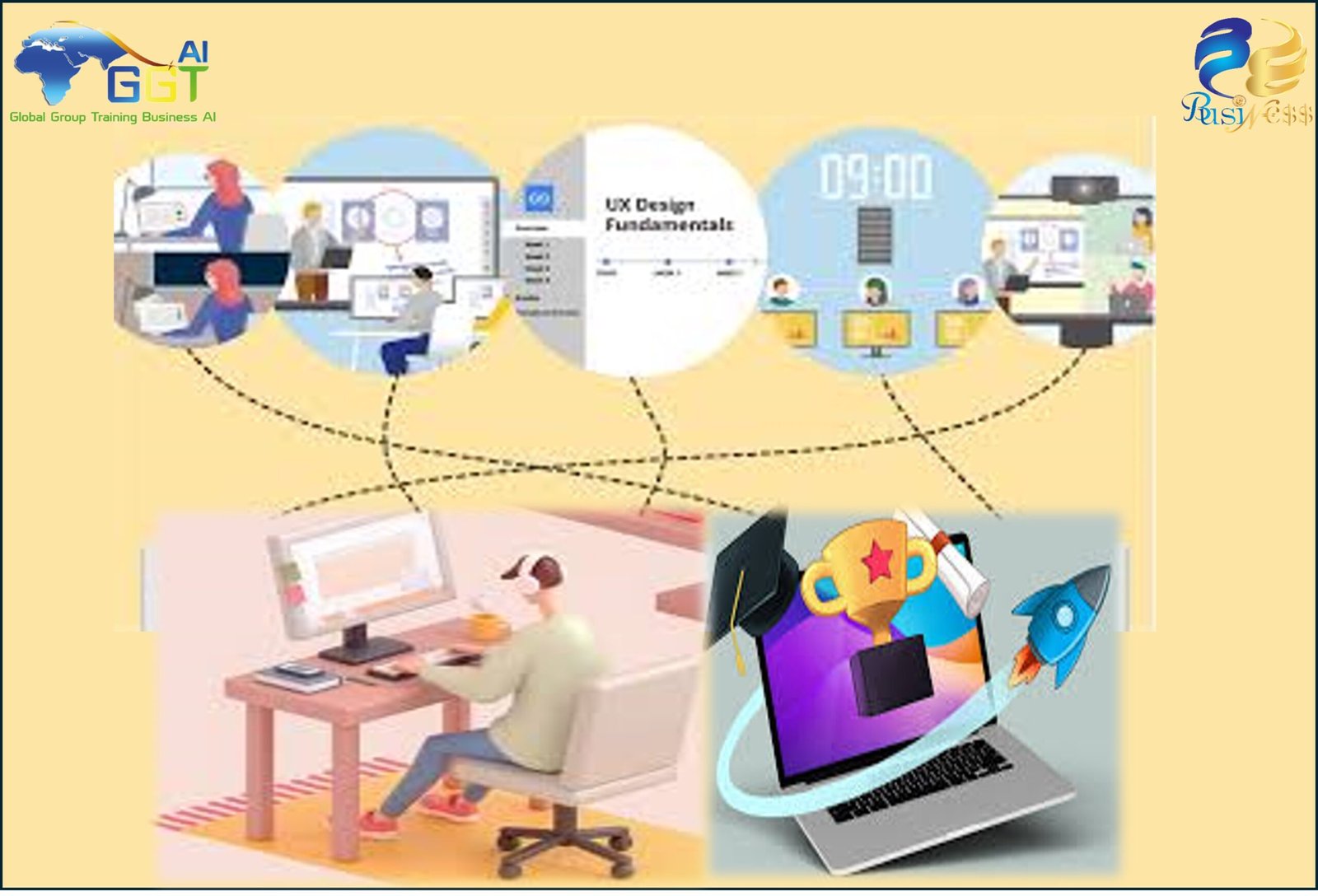

First: Key Aspects of Online Home Learning
Second: Future challenges with home learning
Third: Online Home Learning Outcomes
Fourth: Practical examples of educational platforms
The end
Introduction:
In the era of advanced digital technology, online homeschooling is experiencing unprecedented growth. What was once considered a temporary alternative or an emergency solution has now become a focal point of the global educational system. With the increasing number of digital educational platforms and the advancement of artificial intelligence technologies, online homeschooling opens wide horizons for learners of all ages and backgrounds. This article aims to explore the future of online homeschooling, highlighting how this educational method can revolutionize traditional learning methods.
I. Key Aspects of Online Homeschooling
1. Flexibility and Convenience
One of the biggest advantages of online homeschooling is the flexibility it offers students. Learners can set their schedules based on their personal convenience, allowing them to balance learning with other commitments such as work or family responsibilities. For example, platforms like Coursera and Udemy allow students to choose and enroll in courses at their convenience, eliminating the need to adhere to a strict timetable.
2. Access to Diverse Educational Resources
Online homeschooling provides access to a wide range of educational resources that might be unavailable in traditional education. Students can access recorded lectures, scientific articles, digital libraries, and interactive content such as educational videos and games. For instance, Khan Academy offers a vast array of educational lessons in multiple subjects for free.
3. Personalized Learning
Online learning can provide a personalized educational experience for each student using AI technologies and data analysis. These technologies can track students’ progress and offer tailored recommendations for educational materials that match the student’s level and interests. For example, platforms like Duolingo use AI to provide language learning lessons customized for each user based on their previous performance.
4. Online Social Interaction
While online learning might seem isolating, many platforms offer tools for social interaction between students and teachers. Learners can participate in discussion forums, online study groups, and collaborate on group projects. For example, EdX provides integrated discussion forums where students can interact with each other and instructors, enhancing the group learning experience.



II. Future Challenges with Online Homeschooling
1. The Digital Divide
Despite the numerous benefits of online learning, challenges related to the digital divide persist between those with access to modern internet and technology and those without. Thus, it is important to work on providing high-speed internet and necessary devices for learning to everyone, regardless of their social or economic status.
2. Limited Human Interaction
Online learning lacks the direct human interaction that traditional education can provide. It is crucial to develop tools and methods to enhance personal interaction and emotional support for students who might feel isolated.
3. Assessment and Quality Assurance
Online learning programs require effective assessment systems to ensure the quality of education and verify that students acquire the required skills and knowledge. Developing reliable and comprehensive assessment methods that meet academic and professional standards is necessary.
III. Results of Online Homeschooling
Online homeschooling has many positive outcomes and challenges that impact students, teachers, and society as a whole. These outcomes can be classified into several aspects: academic, social, psychological, and economic.
1. Academic Results
– Improved Academic Performance: Online learning provides students with continuous access to educational resources, enhancing continuous learning opportunities.
– Personalized Education: Online platforms offer tools for personalized education based on student performance analysis.
– Self-Study Skills Development: Online homeschooling helps students develop self-study and time management skills, essential for academic success.
2. Social Results
– Global Interaction: Online learning offers opportunities for students to interact with peers worldwide, enhancing cultural understanding and global communication skills.
– Virtual Educational Communities: Online forums and study groups provide an interactive environment that fosters discussion and idea exchange among students.
3. Psychological Results
– Improved Mental Health: The flexibility offered by online learning allows students to manage their time better and reduce stress from strict academic commitments.
– Personal Support: Tools like interactive chatbots provide immediate support and personal guidance to students, reducing feelings of isolation and stress.
4. Economic Results
– Financial Savings: Online learning reduces costs associated with traditional education, such as transportation, accommodation, and study materials.
– Educational Opportunities for All: Online homeschooling provides opportunities for individuals who may not be able to attend traditional educational institutions due to costs or geographic location.
IV. Practical Examples of Educational Platforms
1. Coursera
– Coursera offers a wide range of courses from prestigious universities worldwide. Students can earn internationally recognized certificates, adding value to their academic and professional qualifications.
2. Udacity
– Udacity provides specialized educational programs known as “Nanodegrees” in fields such as AI, data analysis, and software development. These programs are designed in collaboration with leading industry companies, ensuring the curriculum aligns with modern job market requirements.
3. Khan Academy
– Khan Academy offers free educational resources in a wide range of academic subjects. These resources are widely used in schools to support traditional education and by individuals seeking to learn new skills independently.
4. Global Group
– Global Group is an online educational platform offering a wide range of training courses worldwide. Students can earn internationally recognized certificates upon completing courses, enhancing their resumes and academic qualifications.
Conclusion
Online homeschooling represents an important step towards the future of education. Despite the challenges it faces, it offers numerous benefits that enhance the quality of education and provide equal educational opportunities for everyone. With the continuous development of technology, we can expect a bright future for digital education, where it becomes more inclusive and effective, ensuring that everyone benefits from this digital educational revolution.